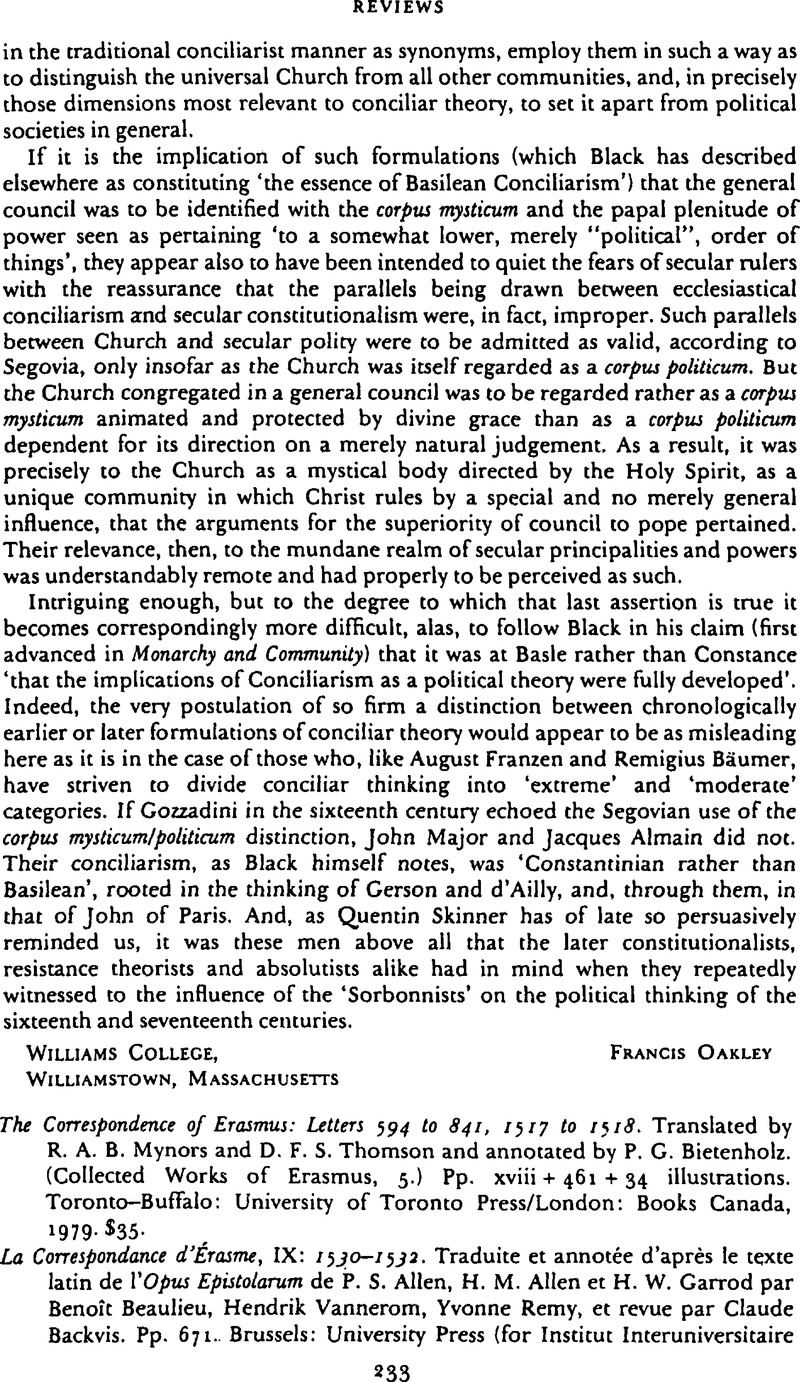No CrossRef data available.
Published online by Cambridge University Press: 25 March 2011

1 One may allow that Pfefferkorn invited abuse: see Hirsch, S. A., ‘Johann Pfefferkorn and the Batde of the Books’, in A Book of Essay, London 1905, 73–115Google Scholar.
2 E.g. in Letter 2569, introd., for L. 2472 read 2473, and in Letter 3544, introd., for 1531 as the date of Agrippa's Declamatio read 1529, and for 1531 as the date of his De incertitudine read (September) 1530 (New College, London, copy now in Dr. Williams's Library). The work by Servetus printed s. 1. 1532 was not a reprint of his De Trinitatis erroribus libri septem (2615, n. 44) but a separate work, Dialogorum de Trinitate libri duo (E. M. Wilbur, History of Unitarianism, Cambridge, Mass., 1945–52, i. 68). It was Tunstall, not Erasmus, who criticised Oecolampadius’ translations (2379, n. 9, where the note in the Opusi has suffered compression). In Letter 2371, n. 18, L. 1383 is a slip for 1382.